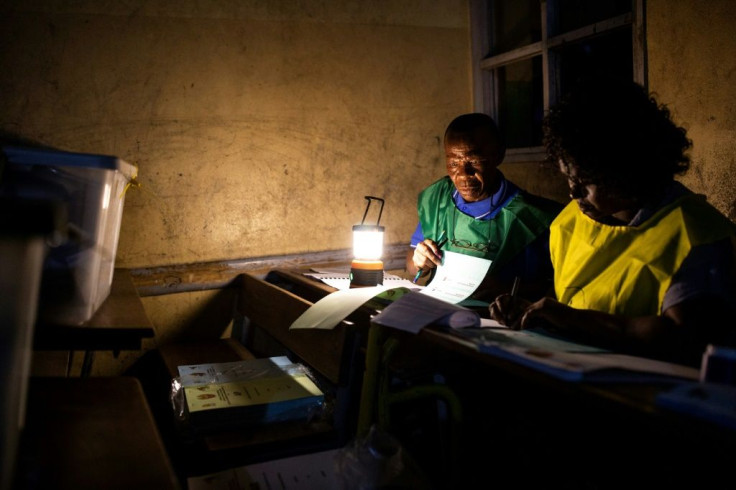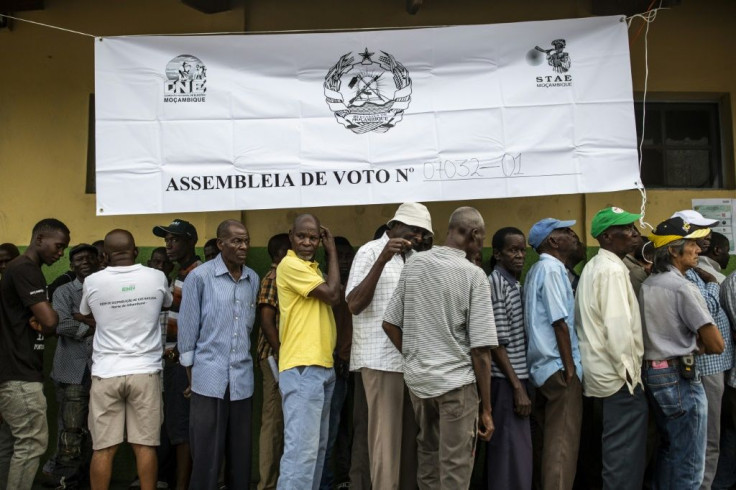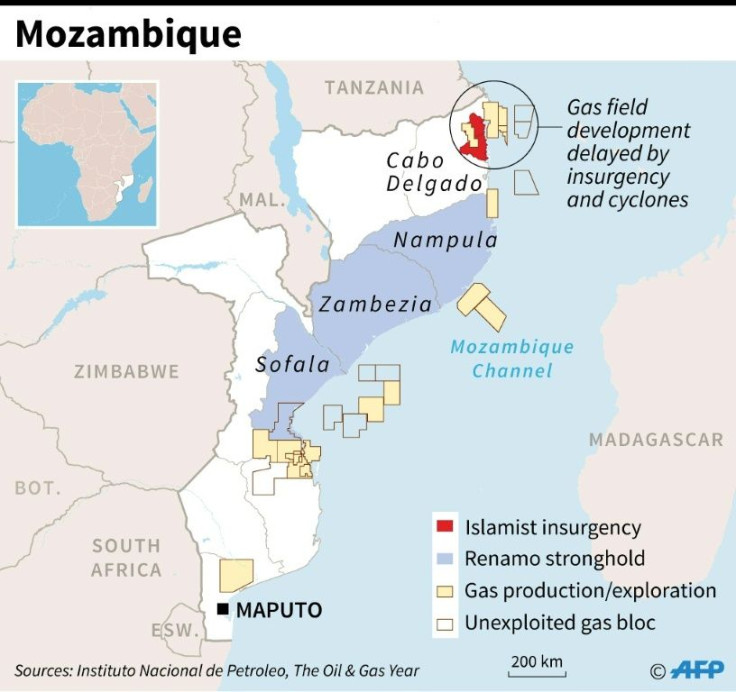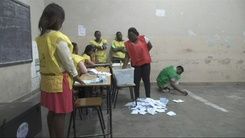Tensions Rise In Mozambique As Vote Counting Under Way

Mozambique counted ballots Wednesday following its high-stakes election, as tensions spiked over claims of voting irregularities and concerns that results will not be revealed for days.
President Filipe Nyusi's Frelimo party, which has ruled the southern African country since independence from Portugal in 1975, is widely expected to win the polls held on Tuesday.
The vote has been seen as a key test of a peace deal sealed in August between former civil war foes Frelimo and Renamo, a rebel group turned main opposition party.
While voting day appeared mostly calm, civil society groups said they found evidence of suspected election rigging, including several attempts to stuff ballots and election observers being kicked out of polling stations.
Election watchdog Sala da Paz said police fired tear gas and warning shots in the central province of Nampula -- a Renamo stronghold -- after opposition supporters refused to leave polling premises to "protect their vote".
"So far, from the issues that have been reported, we cannot say that the process has been 100 percent free and fair," Sala da Paz spokesman Hermenegildo Mulhovo told AFP.
He said that police had killed a voter in Nampula city, the provincial capital, in circumstances that were still unclear.

The authorities were not immediately able to confirm the incident, but said 73 people had been arrested for "disturbances in polling stations".
'Headed down dangerous path'
Mozambique's electoral commission meanwhile indicated it will not publish provisional tallies as it has in the past, only committing to releasing the final results within the mandated 15-day period after the vote.
"The more they delay publishing the results, the more you create lack of trust and risks of tensions," Mulhovo said.

"Most of the problems and irregularities happen after the vote, during the counting process."
Lutero Simango, an MP of the country's third biggest party MDM, said the reports "only confirmed what we were afraid of -- the competition was not fair".
"The will of the people has not been respected, our democracy is headed down a very dangerous path," he told AFP.
Renamo's presidential candidate Ossufo Momade issued a warning as he voted on Tuesday.

"If these results are manipulated we will never accept them, we do not want a return to the problems of the past," the opposition leader said.
On Wednesday Renamo's secretary-general Roque Silva urged Mozambicans to "keep calm during vote counting."
Around 13 million of Mozambique's population of 30 million citizens were registered to vote in the presidential, parliamentary and provincial elections.
Peace deal under pressure
Frelimo and Renamo fought a brutal civil war from 1975 to 1992, and an election campaign marred by violence raised fears that conflict could return to one of the world's poorest countries.
The peace deal signed between the two groups has come under pressure after an armed breakaway faction of Renamo rejected the agreement, spurned Momade's candidacy and vowed to attack campaign events.
As part of the accord, Frelimo agreed to relinquish some control after 44 years in power, by allowing voters to elect governors of the country's 10 provinces for the first time.
Renamo is expected to win control of between three and five provinces.
Sala da Paz said that on election day there were instances of voters being caught with pre-marked ballots in favour of Frelimo in three provinces known as Renamo bastions.
Before the vote, civil society groups estimated there were hundreds of thousands of "ghost voters" -- names not aligned with real, potential voters -- on the electoral roll.
President Nyusi said the election was the most monitored in Mozambique's history, with more than 4,000 observers deployed across the country.
Frelimo entered the vote in an unusually weakened state.
It was revealed in 2016 that its government had taken out a secret loan worth $2 billion, sparking the worst financial crisis in Mozambique's history.
The government is also struggling to respond to a jihadist insurgency in the north which has delayed the development of vast gas reserves hoped to put billions in state coffers.
© Copyright AFP {{Year}}. All rights reserved.





















